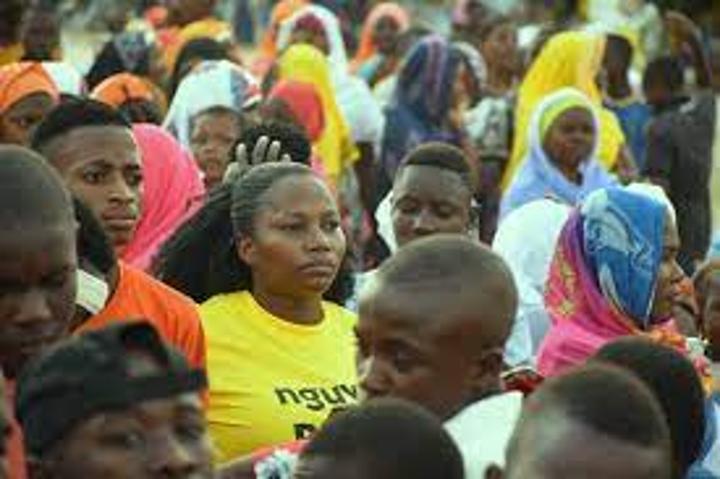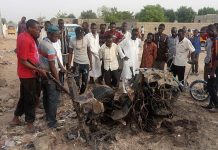By Faridah N Kulumba
Africa-Press-Tanzania The Republic of Tanzania is found in the Eastern part of Africa. It is the 13th largest country in Africa and 31st largest in the world, ranked between the larger Egypt and smaller Nigeria, sited at 947,303 square kilometres. According to the Worldometer of the latest United Nations (UN) data, Tanzania’s current population was more than 62 million as of 18 February 2022, putting the country in the 24th position in the list of countries (and dependencies) by population.
The population of Tanzania is equivalent to 0.77 percent of the total world population, yet the country is believed to be one of the poorest countries in the world with a lot of challenges in many government sectors due to scarcity of resources.
Poverty
The World Bank report 2019, showed that in the last 10 years, poverty has reduced by 8 percentage points, from 34.4% in 2007 to 26.4% in 2018. A further report showed a reduction to 25.7% in 2020. But still, approximately 68 percent of Tanzania’s 61.1 million citizens live below the poverty line of $1.25 a day. 32 percent of the population is malnourished. The most prominent challenges Tanzania faces in poverty reduction are unsustainable harvesting of its natural resources, unchecked cultivation, climate change, and water-source encroachment, according to the United Nations Development Program (UNDP)
Climate change impacts
Due to climate change, temperatures in Tanzania are rising with a higher likelihood of intense rainfall events, resulting in flooding and dry spells which result in drought. The impacts of climate change are already having their toll on the livelihoods of Tanzanians and in many other sectors of the economy in the country. Frequent and severe droughts in many parts of the country are being felt with their associated consequences on food production and water scarcity.
Hunger
Even though Tanzania is trying hard to overcome the problem of extreme hunger and malnutrition. According to the 2021 Global Hunger index, Tanzania ranks 92nd out of the 116, with a score of 24.7 meaning the country has a level of hunger that is serious. Children in rural areas suffer substantially higher rates of malnutrition and chronic hunger, although urban-rural disparities have narrowed as regards both stunting and underweight.
Poor health facilities
Tanzania is one of the countries in sub-Saharan Africa contributing to more than half of the global maternal and newborn deaths. About 9,000 women die every year while giving birth or due to complications related to pregnancy, including malnutrition and lack of access to healthcare, according to the UN. Part of the problem is that less than half of all births take place in a health facility. The health infrastructure has almost collapsed and life expectancy fell down.
Limited access to technology in some areas
Some rural areas’ experience low productivity which arises mainly from inadequate infrastructure investment; limited access to farm inputs, extension services, and credit; limited technology as well as trade and marketing support; and heavy dependence on rain-fed agriculture and natural resources There are very few resources for Tanzanians in terms of credit services, infrastructure, or availability to improved agricultural technologies, which further exacerbates hunger and poverty in the country according to the UNDP.
HIV and AIDS challenges and myth
AIDS was first identified in Tanzania in 1884, About 1.6m people were estimated to be living with HIV at the end of 2018. Even though Tanzania has made a significant job in controlling HIV there are still challenges such as gender inequality, HIV related stigma, and the criminalization of certain groups, such as men who have sex with men, these continue to act as major barriers to preventing the disease, thus making the epidemic a major factor impacting the health and opportunities of the general population.
AIDS is also a serious threat to the country’s socio-economic development.
Another problem that has led to the increase in the disease is, there is a widespread conception among Tanzanians and among some health workers that the 1979 Uganda and Tanzania war contributed to the spread of AIDS across the country.
Human rights abuse acts
Most Human rights abuse acts in Tanzania ere excessive force by security forces, resulting in death and injury; restrictions on assembly and political expression; and gender-based violence, including rape, domestic violence, and female genital mutilation/cutting. Other major human rights problems included harsh and life-threatening prison conditions, lengthy pretrial detention, limits to freedom of expression on the internet, restrictions on religious freedom, restrictions on the movement of refugees, official corruption at many levels nationwide, child abuse, discrimination based on sexual orientation, mob killings and injuries.
Human trafficking
The crimes of human trafficking are increasing day by day. Every year, millions of men, women, and children are trafficked to foreign countries for different reasons, such as forced labor, sexual exploitation, and debt bondage. Human trafficking happens in every country, even developed ones like the United States. Trafficking is modern-day slavery and affects women and girls disproportionately. The government did not maintain a centralized law enforcement data system on trafficking crimes, hindering the government’s ability to disaggregate national human trafficking statistics.
Human sacrifices
Tanzania is facing the challenge of witchcraft-related killings and mutilation. The attackers mainly target for different reasons. According to some sources these criminals reportedly harvest the victim’s body parts for use or sale in traditional witchcraft rites. There have been multiple reports of such albino murders and attacks in recent years. The problem has attracted the attention of some Members of Congress supportive of efforts to end such acts. In March 2017, four Tanzanian albino children who have lost limbs in attacks and had been living in so-called “safe houses” in Tanzania arrived in the United States to receive medical treatment and a “respite from a homeland where they are persecuted and feared.
Fear of expression
These problematic laws and practices have been used to either intimidate, detain, summon,1 arrest, charge, or imprison 23 Internet and digital technology users for, amongst other things, allegedly publishing false Covid-19 information in Ethiopia, Kenya, Rwanda, Tanzania, and Uganda. Worryingly, governments have adopted laws and regulations that criminalize freedom of expression online, including through the introduction of licensing requirements for Internet users, including bloggers and citizen journalists. This is drastically impacting the ability of Internet users to freely express themselves online on the Covid-19 pandemic and on social and political issues, especially around elections and protests.
Post terror trauma on society
Tanzania’s terrorist unrest erupted in 2017, leaving at least 3,500 dead and around 820,000 homeless. The insurgents’ brutal tactics including beheadings, mass abductions, and the torching of homes rattled the region. After terrorist acts, some people suffer from post-traumatic disorder. anxiety and major depression.
The growth of tribalism and religious militants is an indication of the failure of political actors to respond and act effectively to peoples’ needs, especially in the provision of social services. As a result, politics and social relations are increasingly mediated through these structures which offer people some sort of support, access to scarce resources, and security. under these circumstances, the role of the state as protector, the legitimacy of the state, and the concept of the common good are threatened. The state and all that it stands for becomes the victim of these processes, and development.







